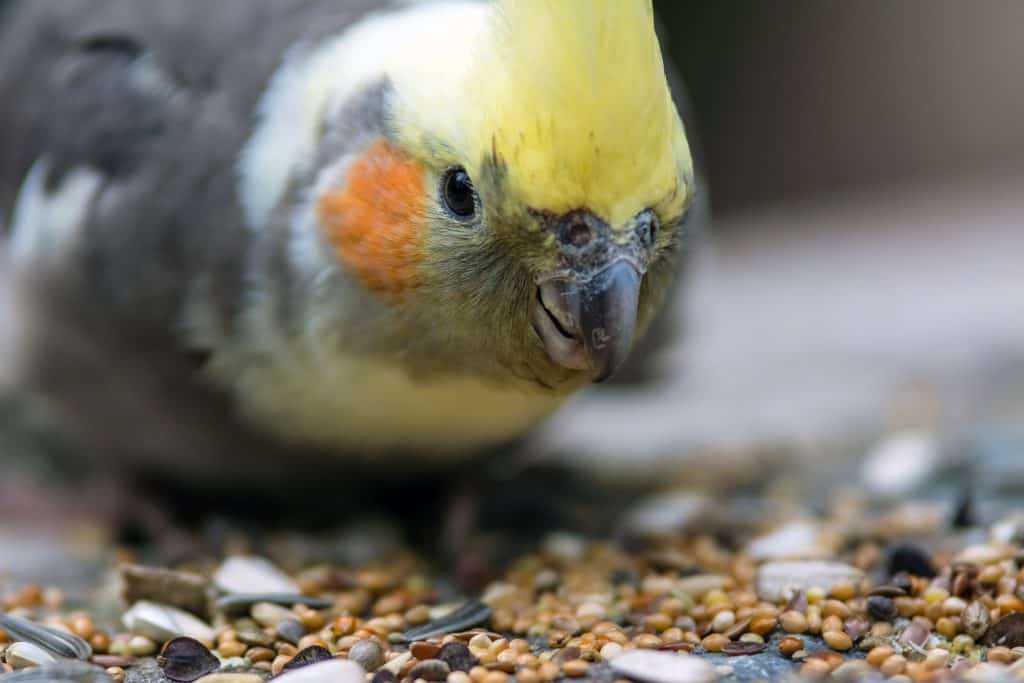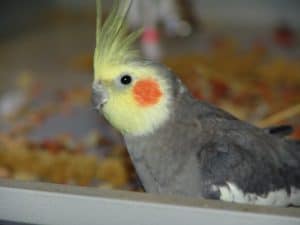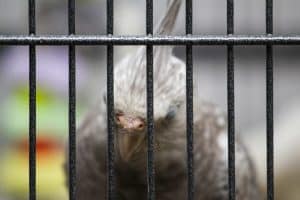Wondering if can a cockatiel be constipated? Cockatiels, like any other bird, can become constipated. Constipation in cockatiels is often the result of a diet lacking in fresh fruit and vegetables. It can also be caused by dehydration or stress.
Signs that a cockatiel may be constipated include lack of appetite, weight loss, lethargy and decreases bird poop or bird droppings. Treatment for constipation usually involves changing the pet bird diet to include more fresh produce and providing plenty of water.
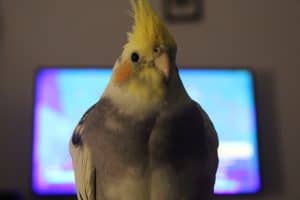
Can a Cockatiel Be Constipated? How To Prevent It?
Prevention is key when it comes to constipation in cockatiels. A diet abundant in fresh fruit and vegetables should form the basis of a cockatiel’s daily meals. Fresh produce should be given daily and should consist of spinach, apples, carrots, sweet potatoes, broccoli and other nutritious foods. Providing plenty of drinking water is also essential to keeping your cockatiel hydrated and preventing constipation. Additionally, be sure that the cage bedding is kept clean, clean your bird’s butt, cockatiel poop can be removed by warm water and dry and the bird has plenty of room to exercise throughout the day. This will help reduce stress levels which can also lead to constipation.
What Are the Reasons Behind Constipation in Birds?
Cockatiels tend to get constipation and can be caused by a variety of factors. Dietary deficiencies or an imbalance of food types can lead to constipation or if cockatiel ate that can cause obstruction. Dehydration due to inadequate water intake or excessive heat, or a disruption in the bird’s regular diet and routines can also be contributing factors. Stress, illness, and certain medications may cause the bird to become constipated, as well.
How to Know If the Droppings are Normal
A cockatiel’s droppings should be firm and consistent in shape. The color of the droppings can vary depending on the types of food the bird has been eating, but generally should be two distinct colors – dark green or brown for fecal matter, and white for uric acid.
If you notice your pet bird is unease or your bird upside down, if the droppings are too loose or have liquid around them, this could be a sign that your cockatiel is constipated. A change in dropping color or consistency can also indicate a health concern, so it is important to monitor any changes closely.
What Are the Symptoms of Bird Constipation?
Symptoms of bird constipation include infrequent defecation, a swollen abdomen, lethargy, and lack of appetite. In advanced cases, the bird may appear to strain during defecation and even regurgitate undigested food. If your cockatiel is displaying any of these symptoms it is important to contact a vet immediately for assistance.
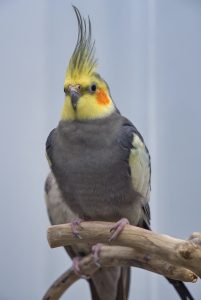
What Are Some Precautions for Constipation in Birds?
To prevent constipation in birds, it is important to make sure they are getting a balanced diet that includes a variety of fresh fruits, vegetables, and whole grains. Avoid giving them foods high in fat and sugar as these can lead to digestive upset. Pay attention to your bird’s droppings to ensure they are staying regular; if you notice any changes, consult your vet for assistance. Finally, provide plenty of stimulation for your bird by offering toys and activities to keep them occupied.
What is the Treatment of Constipation in Birds?
The treatment of constipated bird typically involves providing additional moisture to the diet either by adding water to their food or by offering a shallow bowl of water for them to drink. In more severe cases, your vet may prescribe a laxative to help clear up the blockage.
Additionally, your vet may suggest changes to their diet or lifestyle. If constipation or the bird’s poop seems not normal persists despite these treatments, your vet may need to perform a physical examination and potentially X-rays in order to diagnose the underlying cause.
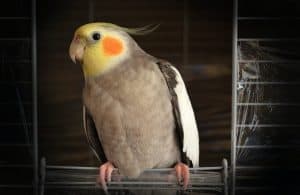
Can a Cockatiel Be Constipated? – Bottom Line
Yes, a cockatiel can become constipated. Signs of constipation can include decreased appetite, loss of energy, and changes to the bird’s droppings like runny poop. It is important to take precautions to prevent constipation in birds by ensuring they are getting a balanced diet and enough stimulation. If constipation occurs despite these measures, it is best to consult your avian vet for assistance as more severe cases may require treatment or examination.
